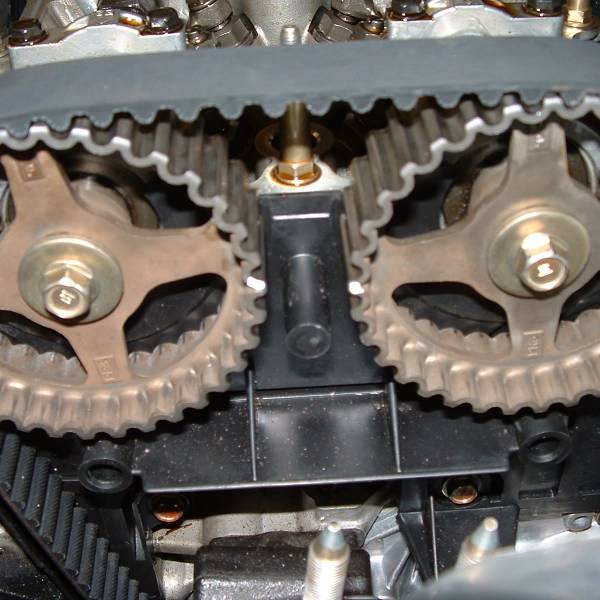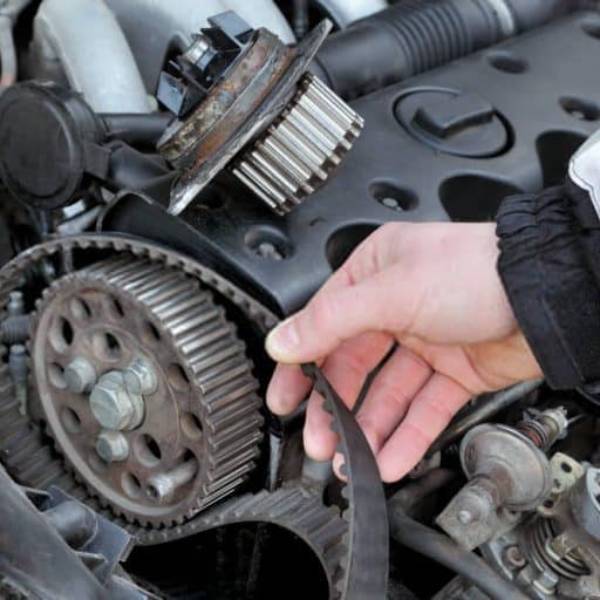Physical Address
304 North Cardinal St.
Dorchester Center, MA 02124
Physical Address
304 North Cardinal St.
Dorchester Center, MA 02124

How much to change a timing belt is a common question among car owners. Timing belts are crucial for engine performance because they synchronize engine components. This synchronization ensures smooth engine operation and prevents serious damage. Ignoring the timing belt can lead to costly repairs or severe engine issues. Therefore, understanding the costs involved in replacing a timing belt is essential for maintaining your vehicle’s health and avoiding unexpected expenses.
Several factors affect the cost of timing belt replacement. These include labor rates, the vehicle’s make and model, and the complexity of the engine. Generally, newer and more complex engines may incur higher costs. Additionally, the price can vary between dealerships and independent mechanics. Always consider these factors when budgeting for the replacement. Ensuring timely replacement according to your vehicle’s maintenance schedule can save you from more significant expenses down the road.

The decision to change a timing belt depends on several factors. First, examine the vehicle for signs that suggest a replacement is necessary. Common indicators include unusual engine noises, engine misfiring, and oil leaks around the timing belt cover. These symptoms often signal that the timing belt may be failing. If you notice any of these issues, it’s crucial to address them promptly. Ignoring these signs can lead to more severe damage and expensive repairs in the future.
Acting quickly on timing belt issues can prevent further complications. Regular maintenance and timely replacement of the timing belt can save you from significant engine problems down the road. Moreover, replacing the timing belt when needed ensures your engine runs smoothly and efficiently. By staying alert to potential problems and addressing them early, you protect your vehicle’s longevity and performance. Timely intervention is key to avoiding costly repairs and maintaining your vehicle’s reliability.
One major factor affecting the cost of timing belt replacement is labor. Replacing a timing belt is labor-intensive because of its location in the engine. Mechanics typically charge between $70 and $150 per hour for their services. The total labor cost can be significant, as the replacement process may take up to six hours. Consequently, labor charges often constitute a large portion of your overall bill.
The complexity of the replacement job further influences labor costs. For more intricate engine designs, mechanics may need additional time and expertise. This extended labor time increases the total cost of the replacement. Understanding these factors can help you anticipate the labor expenses associated with changing your timing belt. By being aware of these details, you can better prepare for the financial impact of the service.

For those considering a DIY timing belt replacement, the cost of parts is your primary expense. Although you can save on labor costs, the job requires significant skills and tools. Replacing a timing belt is complex and demands a good understanding of engine mechanics. Without the proper expertise, you risk damaging your engine, which could lead to more costly repairs.
Many people opt for professional help to avoid potential pitfalls. Mechanics bring the necessary experience and tools to ensure the job is done correctly. While this option may be more expensive, it provides peace of mind and reduces the risk of engine damage. Weighing the potential savings against the risk of a DIY mistake can help you decide whether to tackle the replacement yourself or hire a professional.
In conclusion, understanding how much to change a timing belt is crucial for every vehicle owner. Knowing the costs and factors involved helps you make informed decisions. Regular maintenance and timely replacements play a significant role in extending your vehicle’s lifespan. Don’t wait for unusual noises or leaks to prompt action. Being proactive allows you to avoid unnecessary stress and financial strain. Addressing potential issues before they escalate can save you from more significant repairs. When considering Timing Belt Replacement Cost Honda, proactive maintenance can save you from larger repair bills and extend your vehicle’s lifespan.
Maintaining a regular check-up schedule ensures your engine runs smoothly and efficiently for years to come. Following the recommended maintenance schedule helps you prevent unexpected breakdowns and costly repairs. By staying vigilant about your vehicle’s performance and acting on any signs of trouble, you protect your investment. Regular attention and timely interventions contribute to your vehicle’s reliability and longevity. Keep an eye on your vehicle and take proactive steps to maintain its optimal performance.